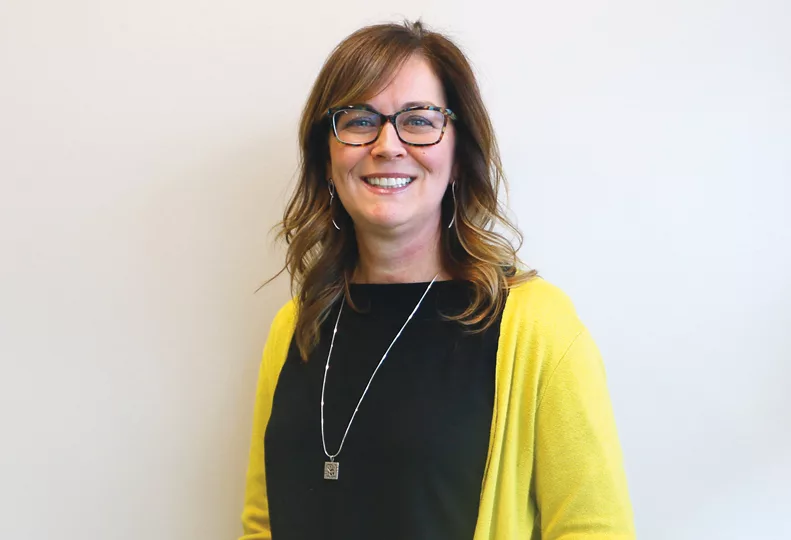Q&A with Vanessa Behan Crisis Nursery's Amy Knapton Vega
Vanessa Behan Crisis Nursery executive director

Amy Knapton Vega has been executive director of the Vanessa Behan Crisis Nursery for about 13 years. The nonprofit organization, named for a Spokane two-year-old who died in 1982 due to injuries from child abuse, has been serving children at risk of abuse and neglect and their families since 1987 by providing 24-hour care for children, as well as services such as crisis counseling for their families.
Before the organization’s new 30,000-square-foot facility opened this week at 2230 E. Sprague, the nonprofit occupied a small building on the lower South Hill. Vega says the comparatively enormous new space excites her because she can envision the many different ways in which it could be used.
The Journal sat down with Vega to discuss the crisis nursery’s role in the community and Vega’s history in the social services field.
Journal: How has the crisis nursery changed in your time there?
Vega: I think I’d probably start with what hasn’t changed. We are still prevention focused. We still have our core values of keeping kids safe, building strong families, and doing that with a community partnership. We’re still 100% privately funded, and we are a very frugal, humble organization. We started because of people who were giving $5 and $10 a month. We are still built on that, and I don’t think that’s ever going to change.
Then you look around, and you see how much has changed. The makeup of Spokane has changed. The needs of our families have grown. The things our families are dealing with have grown. The information that we have on childhood trauma and adverse experiences for children has grown. We know so much more, which has allowed us to really drive our programs and our vision for how we can help families. The basics -- we’re here to keep kids safe and we’re here to strengthen families -- haven’t changed, and I don’t think they ever will.
Journal: What first drew you into the field of social work?
Vega: It’s all my mother’s fault. She’s a nurse. She’s the one who would bring home hitchhikers to live with us. I blame her, in a good way. She was a great role model for being a part of a community, giving back to those in need, being a servant leader, doing for others what you would want them to do for you.
I was taking a break from school and decided to volunteer at Big Brothers and Big Sisters, in Missoula. But when I sat down with the staff member at Big Brothers, I was like, “Your job is fascinating.” I probably asked her more questions than she asked me. I thought, “Maybe I’ll take a class in social work.” So I did. I went back to school and started looking at social work, and I just felt like that was a natural fit.
Journal: Other than your mom, who else has been a mentor to you?
Vega: Joe Albert, over at Gonzaga’s leadership studies program. When I first moved to Spokane, I saw him speak a couple of times. He talked about servant leadership and authentic leadership and being authentic to who you are, and that really resonated with me. You always feel like there’s this defined leader, and I never really felt like that was me. Then I started hearing about being authentic, and that’s just who I am. I pretty much wear my heart on my sleeve. I don’t really hold anything back.
Journal: What is the greatest challenge the crisis nursery is facing?
Vega: We’ve got endless potential here, but the financial resources have to match that. We need people to invest in what we’re doing to make it happen. Every year, we start over at roughly zero budget and say, “Community, help us.” Everything you see around here happens because somebody in our community has said, “This is a worthy investment,” and helped make that impact. One of our biggest challenges is how do we take this big, beautiful building and say, “Thank you, keep helping us.”
Journal: Now that the organization has this new facility, what’s next for your vision for this place?
Vega: Filling it. Filling it to capacity.
We don’t just want to do more of the same, we want to take our 33 years of experience, plus all the research that’s happening out there, plus all of the other nonprofits in our community that are doing similar work, and figure out how we can do new and innovative programs to make Spokane very different.
Related Articles
Related Products

_c.webp?t=1763626051)
_web.webp?t=1764835652)

